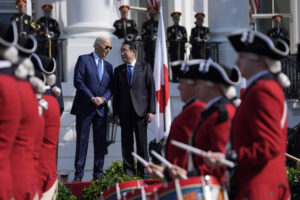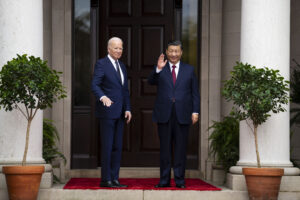Chinese E-Commerce Giant Alibaba Sets Plans for Thailand
The company has agreed to step up investments in the Southeast Asian country as competition between online retailers heats up in the fast-growing region.BANGKOK — The Chinese e-commerce giant Alibaba has agreed to step up investments in Thailand as competition between online retailers heats up in fast-growing Southeast Asia.
The founder of the online shopping giant, Jack Ma, met with Thailand’s prime minister, Prayuth Chan-ocha, on Thursday and later signed several agreements, including one to help set up a “smart digital hub” in a showcase project called the Eastern Economic Corridor, to facilitate trade between Thailand, China, Laos, Myanmar, Cambodia and Vietnam.
Both Ma and Prayuth sought to allay concerns that Alibaba’s growing involvement might increase Chinese influence without benefiting Thailand. Across the region, such concerns have deepened as Beijing expands investments in a slew of projects that help expand transportation and supply chain networks linked to China.
“Are we going to occupy Thailand, are we going to take away the jobs?” Ma said at a news conference. “We are not interested in that. We are interested in and focusing on enabling entrepreneurs and partners in Thailand.”
Prayuth told reporters that the amount of investment involved would be determined later. Earlier, Thai media reported that Alibaba plans to invest 11 billion Thai baht ($350 million) in the Eastern Economic Corridor.
Reports said the hub, due to be completed next year, would also serve as a research and development center for Alibaba.
Prayuth, who as army commander led a 2014 coup, said he asked Ma to help Thailand to boost exports of rice, palm oil and rubber and to help the country’s low-income and farm workers.
Ma told the Thai leader that Alibaba could help develop logistics systems to speed up delivery of farm products, he said.
“Therefore, this is beneficial to Thailand. Don’t think of this as being disadvantageous for Thailand,” Prayuth said.
The government said Alibaba also plans to help train Thai entrepreneurs and small businesses in e-commerce and to set up an online tourism platform.
Alibaba and Amazon both have been expanding in Southeast Asia, an increasingly affluent region of more than 600 million people. E-commerce still accounts for less than 3 percent of retail sales in the region but is growing quickly.
Last month, Alibaba announced it was investing another $2 billion in regional online retailer Lazada Group, doubling its stake in the company that it gained control of in 2016.
___
Associated Press writer Kaweewit Kaewjinda contributed.
Your support matters…Independent journalism is under threat and overshadowed by heavily funded mainstream media.
You can help level the playing field. Become a member.
Your tax-deductible contribution keeps us digging beneath the headlines to give you thought-provoking, investigative reporting and analysis that unearths what's really happening- without compromise.
Give today to support our courageous, independent journalists.






You need to be a supporter to comment.
There are currently no responses to this article.
Be the first to respond.